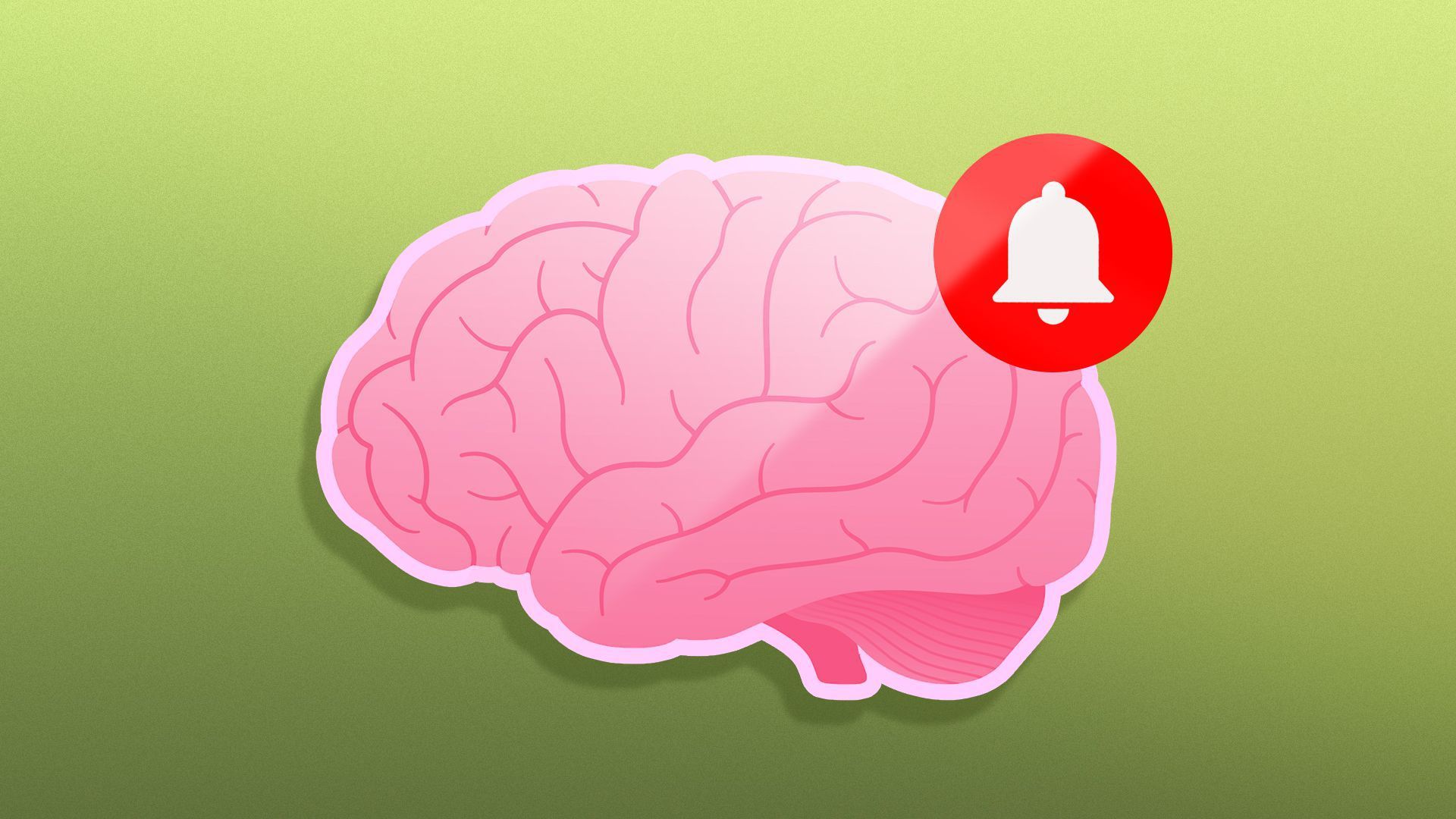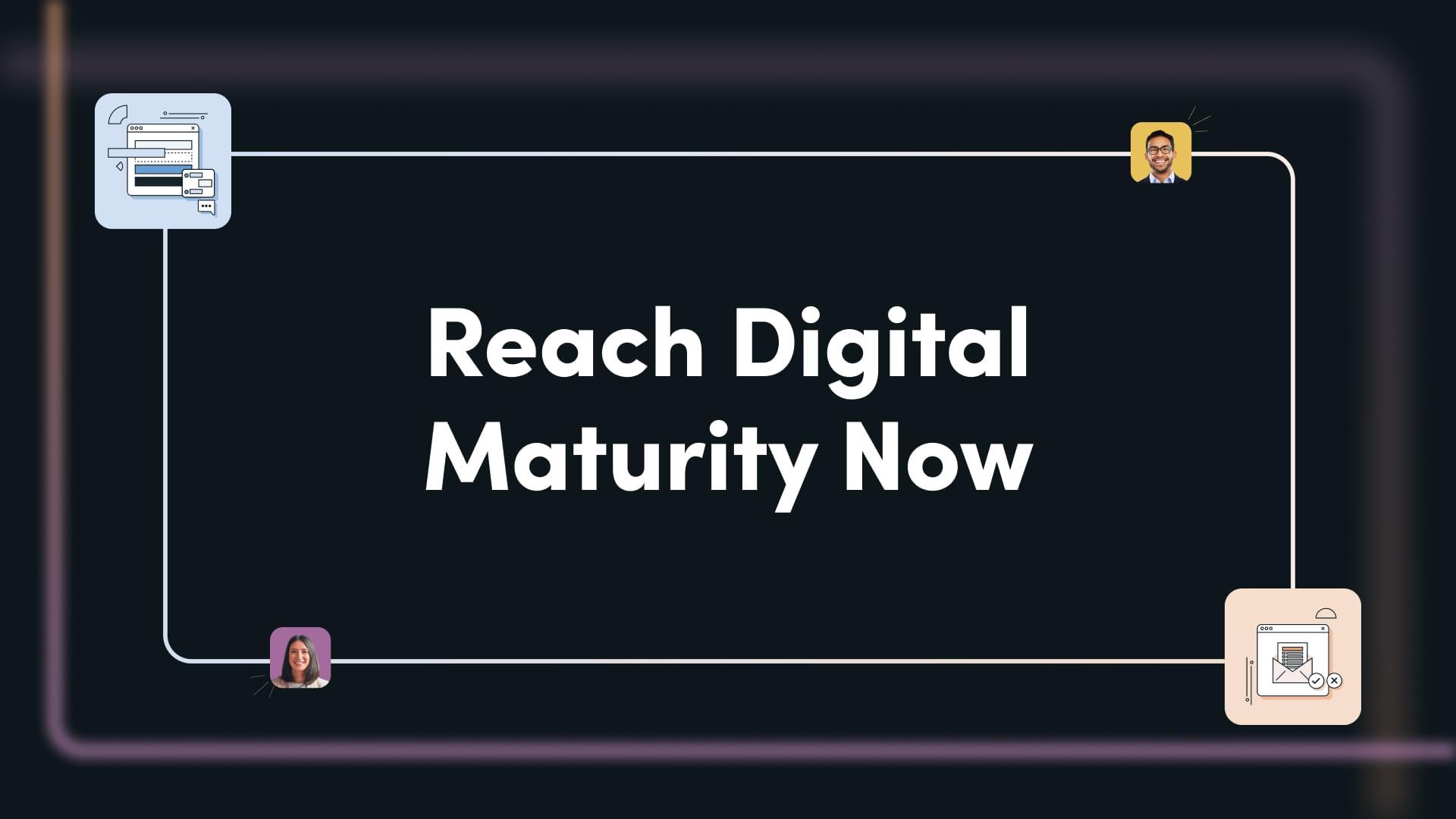| | | | | | | Presented By Formstack | | | | Axios Login | | By Ina Fried · May 02, 2022 | | OK, Brooklyn readers, is this accurate? 🍎 Situational awareness: EU regulators have officially charged Apple with abusing its market dominance by limiting competition for mobile payments. Today's newsletter is 1,174 words, a 4-minute read. | | | | | | 1 big thing: Mental health app boom raises alarms |  | | | Illustration: Sarah Grillo/Axios | | | | The same pandemic-driven boom in mental health and wellness apps that helped ease two years of COVID-driven discontents is now raising alarms over privacy, efficacy and a blurring of the line between formal medical treatment and general self-care, Axios' Ashley Gold reports. Why it matters: Online services for mental health have given more people easy access to help than ever before, and the sector is booming with investment. Yes, but: Not every mental health problem can be solved with an app, and consumers are confused by the range of options available — faced with advertising for apps that can sometimes conflate serious mental health issues with vaguer well-being concerns. - "We need to become more sophisticated and differentiate between the apps and what they're trying to do," René Quashie, vice president of policy and regulatory affairs for digital health at the Consumer Technology Association, told Axios.
- "There's a difference between somebody who's got serious depressive symptoms, and somebody who is going through a stressful period in their life," and apps should be clear about their aims and abilities, Quashie said.
What they're saying: Experts who spoke to Axios said mental health apps fall into two camps: those that connect patients to clinicians and those that don't, instead offering chatbots, mood trackers and guided breathing exercises. - "I think we all want for there to be great ways to see our doctors remotely ... but when you move to online, you have to think about the modality of treatment, and whether it's going to be effective," Christina Farr, a health-tech investor at Omers Ventures, told Axios.
- For example, Farr said, cognitive behavior therapy is especially popular for online health services, but it isn't going to work for every patient.
Privacy and efficacy questions: Privacy policies for mental health apps are all over the place. - Problems are more common with apps that don't include clinical intervention, and thus aren't subject to health privacy rules, and the lack of a comprehensive federal privacy law makes that worse, Quashie said.
- A 2018 study published in the journal Internet Interventions found that fewer than half of 116 apps for depression surveyed had any privacy policy. In 2021 Consumer Reports found that some popular mental health apps were sharing data with Meta and other companies, and tracking for targeted advertising.
- Research from January looking at mobile apps for mental health failed to find "convincing evidence" that any app intervention significantly helped with people's anxiety, depression, smoking or drinking, thoughts of suicide, or feelings of well-being.
There's also controversy around apps that diagnose and prescribe stimulants for treating attention deficit disorders. Those apps grew in popularity thanks to a pandemic-era waiver that allows companies to prescribe controlled substances online, but now some are facing accusations that they are "Adderall mills." The other side: Connecting to a therapist via an app can be a lifeline for people, especially during COVID-19 lockdowns. - Studies suggest that in some cases, online therapy with a licensed provider can work just as well as in-person. "We can actually say, whether you do it over Zoom or in real life, that those outcomes are pretty similar," Stephanie Collier, an instructor in psychiatry at Harvard Medical School, told Axios.
- Tiffanie Mouzoon, a 41-year-old woman in from Orange County, Calif., told Axios she started using TalkSpace to text with a therapist when she was in recovery from an injury and unable to go anywhere in person.
- She said using the app took away the stigma of seeking mental health help. "I hit it off with my therapist," she said. "It's just really been there for me during a lot of my recovery. When you go to therapy, everyone's kind of looking at the clock... Through the day, if I needed to talk to her, I could just text her."
By the numbers: $4.4 billion flowed into mental health apps globally in 2021. $1.4 has been poured into the industry thus far in 2022, according to data provided to Axios by Pitchbook. 406 mental health startup deals were made in 2021, with 126 so far in 2022. |     | | | | | | 2. Students don't want Musk running Twitter |  | | | Photo: Jim Watson/AFP via Getty Images | | | | Nearly six in 10 college students say they don't want Elon Musk to own and control Twitter. But compared to other billionaires and other social media platforms, Musk and Twitter get pretty favorable reviews, according to a new Generation Lab/Axios poll, Axios' Neal Rothschild reports. By the numbers: Asked which mega-billionaires they like, 35% selected Musk — well above all others, including Jeff Bezos, Mark Zuckerberg, Bill Gates and Warren Buffett. Still, 53% picked "none of the above." - Compared to TikTok, Instagram and Facebook, students say they have more trust in Twitter (12%) to make wise decisions about important things — although the bigger picture is still grim. 77% trust none of the companies listed.
- Twice as many say they have concerns about Facebook and TikTok than about Twitter.
The big picture: Students don't appear to share Elon Musk's view that social media culture inhibits free speech. - 76% say people can express themselves freely online.
Like the country writ large, opinions about Musk owning Twitter still divide steeply along partisan fault lines, although the male-female split is nearly as stark. - 69% of Republicans and 65% of men want Musk to do so, compared to 22% of Democrats and 29% of women.
- 57% of Republicans and and 57% of men say they like Elon Musk. These were the only two sub-groups with positive favorability among any of the five billionaires we asked about.
The bottom line: Students view Twitter a bit less negatively than the other major social media platforms. - 12% said it has made their life worse, compared to 16% for Facebook, 16% for Instagram and 18% for TikTok.
- Overall, social media is playing a more negative role in their lives. 48% have enjoyed it less over the past few years, while 21% have enjoyed it more.
|     | | | | | | 3. Buffett: Berkshire has stake in Activision | | Berkshire Hathaway has a 9.5% stake in Activision Blizzard, billionaire Warren Buffett revealed on Saturday at Berkshire's annual meeting, Axios' TuAnh Dam reports. The big picture: Berkshire has been buying shares of the video game giant since January, when it bought stock just before Microsoft announced it had agreed to buy Activision for $68.7 billion in cash. - Berkshire owned 2% in Activision before its latest purchases.
What they're saying: Buffett said the Activision stock purchases were his decision and a bet that the deal with Microsoft would close. - "If the deal goes through, we make some money," Buffett said at Berkshire's annual shareholder meeting.
|     | | | | | | A message from Formstack | | Virtual event: Digital maturity in 2022 | | |  | | | | Join thought leaders from Salesforce, Crowe, Banner Health and Formstack for a panel discussing digital maturity and how to move toward true efficiency. What's in it for you: They'll reveal how organizations digitize processes, automate workflows and improve efficiency. Register now. | | | | | | 4. Take note | | On Tap Trading Places - Rajeev Rajan, who has been a top engineer in Meta's Seattle office, is joining Atlassian in May as CTO, GeekWire reports.
ICYMI - A study found that students applying for financial aid had their data shared with Meta through its use of a Facebook pixel tracker. (The Markup)
|     | | | | | | 5. After you Login | | In an effort to pinch pennies, one creative inventor build a device that turns your house lights off when you blink ... and then added a taser for good measure. |     | | | | | | A message from Formstack | | Digital maturity findings revealed | | |  | | | | We surveyed 2,000 U.S. knowledge workers to find out how organizations are digitizing processes, automating workflows and improving efficiencies. Now, we're sharing what contributes to digital maturity and how you can move toward true efficiency. Register for our panel to hear more. | | |  | It's called Smart Brevity®. Over 200 orgs use it — in a tool called Axios HQ — to drive productivity with clearer workplace communications. | | | | | | Axios thanks our partners for supporting our newsletters. If you're interested in advertising, learn more here.
Sponsorship has no influence on editorial content. Axios, 3100 Clarendon Blvd, Suite 1300, Arlington VA 22201 | | | You received this email because you signed up for newsletters from Axios.
Change your preferences or unsubscribe here. | | | Was this email forwarded to you?
Sign up now to get Axios in your inbox. | | | | Follow Axios on social media:    | | | | | |






No comments:
Post a Comment